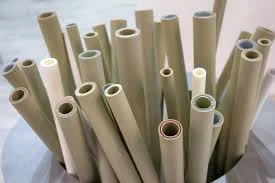
-
 Afrikaans
Afrikaans -
 Albanian
Albanian -
 Amharic
Amharic -
 Arabic
Arabic -
 Armenian
Armenian -
 Azerbaijani
Azerbaijani -
 Basque
Basque -
 Belarusian
Belarusian -
 Bengali
Bengali -
 Bosnian
Bosnian -
 Bulgarian
Bulgarian -
 Catalan
Catalan -
 Cebuano
Cebuano -
 China
China -
 China (Taiwan)
China (Taiwan) -
 Corsican
Corsican -
 Croatian
Croatian -
 Czech
Czech -
 Danish
Danish -
 Dutch
Dutch -
 English
English -
 Esperanto
Esperanto -
 Estonian
Estonian -
 Finnish
Finnish -
 French
French -
 Frisian
Frisian -
 Galician
Galician -
 Georgian
Georgian -
 German
German -
 Greek
Greek -
 Gujarati
Gujarati -
 Haitian Creole
Haitian Creole -
 hausa
hausa -
 hawaiian
hawaiian -
 Hebrew
Hebrew -
 Hindi
Hindi -
 Miao
Miao -
 Hungarian
Hungarian -
 Icelandic
Icelandic -
 igbo
igbo -
 Indonesian
Indonesian -
 irish
irish -
 Italian
Italian -
 Japanese
Japanese -
 Javanese
Javanese -
 Kannada
Kannada -
 kazakh
kazakh -
 Khmer
Khmer -
 Rwandese
Rwandese -
 Korean
Korean -
 Kurdish
Kurdish -
 Kyrgyz
Kyrgyz -
 Lao
Lao -
 Latin
Latin -
 Latvian
Latvian -
 Lithuanian
Lithuanian -
 Luxembourgish
Luxembourgish -
 Macedonian
Macedonian -
 Malgashi
Malgashi -
 Malay
Malay -
 Malayalam
Malayalam -
 Maltese
Maltese -
 Maori
Maori -
 Marathi
Marathi -
 Mongolian
Mongolian -
 Myanmar
Myanmar -
 Nepali
Nepali -
 Norwegian
Norwegian -
 Norwegian
Norwegian -
 Occitan
Occitan -
 Pashto
Pashto -
 Persian
Persian -
 Polish
Polish -
 Portuguese
Portuguese -
 Punjabi
Punjabi -
 Romanian
Romanian -
 Russian
Russian -
 Samoan
Samoan -
 Scottish Gaelic
Scottish Gaelic -
 Serbian
Serbian -
 Sesotho
Sesotho -
 Shona
Shona -
 Sindhi
Sindhi -
 Sinhala
Sinhala -
 Slovak
Slovak -
 Slovenian
Slovenian -
 Somali
Somali -
 Spanish
Spanish -
 Sundanese
Sundanese -
 Swahili
Swahili -
 Swedish
Swedish -
 Tagalog
Tagalog -
 Tajik
Tajik -
 Tamil
Tamil -
 Tatar
Tatar -
 Telugu
Telugu -
 Thai
Thai -
 Turkish
Turkish -
 Turkmen
Turkmen -
 Ukrainian
Ukrainian -
 Urdu
Urdu -
 Uighur
Uighur -
 Uzbek
Uzbek -
 Vietnamese
Vietnamese -
 Welsh
Welsh -
 Bantu
Bantu -
 Yiddish
Yiddish -
 Yoruba
Yoruba -
 Zulu
Zulu
fiberglass reinforced plastic pipe
The Advantages of Fiberglass Reinforced Plastic Pipe
In recent years, the construction and manufacturing industries have increasingly turned to innovative materials to enhance the durability and capabilities of various infrastructures. One such material that has gained significant traction is fiberglass reinforced plastic (FRP) pipe. This composite material, which combines thermosetting resins with fiberglass fibers, has proven to offer a plethora of advantages over traditional piping materials like steel, concrete, and even PVC.
Durability and Strength
One of the most compelling advantages of FRP pipes is their superior strength-to-weight ratio. Fiberglass reinforced plastic is incredibly strong despite being lightweight, which makes transportation and installation much easier than heavier materials. Additionally, the intrinsic properties of fiberglass allow FRP pipes to withstand high internal pressures, making them suitable for a wide range of applications, from water and sewage systems to industrial processes.
Moreover, FRP pipes are resistant to corrosion. Unlike metal pipes, which can rust over time, or concrete pipes, which can degrade when exposed to certain chemicals, FRP pipes are engineered to resist chemical attacks. This characteristic is particularly valuable in industries such as chemical processing and wastewater treatment, where the fluid being transported may contain corrosive substances. By minimizing the impact of corrosion, FRP pipes have a significantly extended lifespan, resulting in lower maintenance and replacement costs over time.
Flexibility in Design
Another noteworthy feature of FRP pipes is their flexibility in design. They can be manufactured in various sizes, shapes, and configurations, allowing for customization that meets specific project requirements. This adaptability is particularly beneficial for complex construction projects that demand unique piping systems to navigate challenging landscapes or integrate with existing infrastructure. Whether it’s for bends, tees, or even customized fittings, FRP can be engineered to fit the desired specifications with ease.
The lightweight nature of FRP also allows for easy handling and installation, which can lead to significant time and labor savings during construction. Since FRP pipes can often be installed without heavy machinery equipment, both the installation process and overall project timelines can be expedited, providing further economic benefits.
fiberglass reinforced plastic pipe

Thermal Insulation Properties
In addition to their robust mechanical properties, FRP pipes can offer considerable thermal insulation. This quality is especially important in industries where temperature control is essential, such as in oil and gas applications or HVAC systems. By using FRP piping, companies can minimize energy loss, leading to greater efficiency and cost savings over time.
Environmental Impact
As society grows increasingly aware of environmental sustainability, materials and practices that promote eco-friendliness have become more popular. FRP pipes are manufactured with less energy consumption than traditional materials, and their long lifespan further contributes to reducing overall waste. Additionally, the lightweight nature of FRP allows for reduced transportation emissions during delivery to construction sites.
Furthermore, FRP pipes are often touted as non-toxic, which is crucial for applications related to drinking water or any other fluid that requires safe transport. This safety feature aligns with the growing demand for environmentally responsible products.
Conclusion
Fiberglass reinforced plastic pipe offers a robust, durable, and flexible alternative to traditional piping materials. With its exceptional resistance to corrosion, lightweight properties, and customizability, FRP pipes have established themselves as a go-to solution across various industries, from construction to chemical processing. Their advantages not only contribute to the efficiency and longevity of infrastructures but also align with modern sustainability goals. Thus, as organizations look to optimize their infrastructure investing and embrace innovative solutions, FRP pipes will undoubtedly continue to play a critical role in shaping the future of piping technology.









